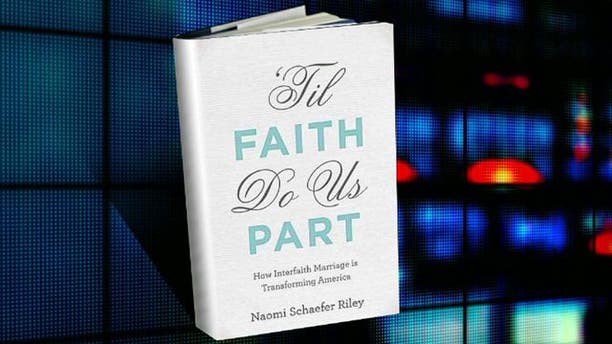Its
a joy for me to read about interfaith marriages where people respect the otherness of
others, and accept the God given uniqueness of each one ... my standard sentence
for 15 years. Did you see Saif Ali Khan used the same sentences but
shortened?
The source of publication is not known, but I know about the actor and his
parents. India has a long list of celebrities and politicians marrying interfaith.
Mike
Ghouse
# # #
Saif
Ali Khan, for those who may not know, is the son of actress Sharmila Tagore and
cricketer the Nawab of Pataudi.
Below
are his musings about religion, faith, God, politics, and modern
society.
Intermarriage in India.
Written by Saif Ali Khan |
Posted: October 15, 2014 2:20 am
I am the son of a sportsman, I grew up
in England, Bhopal, Pataudi, Delhi and Mumbai, and I am more Indian than any
Hindu or Muslim I know because I am both. I wrote this piece not to comment on
the masses or the problems of communalism in India and its villages, but because
this is an issue that concerns my friends and their families.
It wasn’t
peacefully accepted by anyone, initially, when my parents wanted to marry. The
royals had their issues; the Brahmins theirs. And, of course, extremists on both
religious sides issued death threats. But the marriage still happened — the fact
that my grandmother also had to fight to marry the not-as-wealthy and therefore
not-so-suitable nawab of Pataudi might have helped things along. We grew up on
real-life romantic stories about our elders marrying for love and not worrying
too much about tradition. And we were brought up to believe that god is one,
with many names.
When Kareena and I married, there were similar death
threats, with people on the Net saying ridiculous things about “love jihad”. We
follow whatever religion or spiritual practice we believe in. We talk about them
and respect each other’s views. I hope our children will do the same.
I
have prayed in church and attended mass with Kareena, while she has bowed her
head at dargahs and prayed in mosques. When we purified our new home, we had a
havan and a Quran reading and a priest sprinkling holy water — no chances
taken!
What is religion? What is faith? Does a perfect definition exist?
I don’t know. But I know doubt. I’m intrigued by the politics of doubt. Doubt
gives us faith. Doubt keeps us questioning what keeps us alive. If we become
sure of something, then there is a danger of becoming
fanatical.
Religion needs to be separated from a lot of things. Our
religions are based on fear. The Old Testament spoke of a Promised Land for a
people, but there were people already living there. The problem is still burning
today. There have been too many atrocities committed in the name of
god.
I know good people are scared of marrying their daughters to
Muslims. They fear conversion, quick divorces, multiple marriages — basically,
it suits the boys a bit more than the girls. All this is undoubtedly outdated. A
lot of Islam needs to modernise and renew itself in order to be relevant. We
also need a loud moderate voice to separate the good from the evil. Islam today
is more unpopular than it has ever been. This is a great shame to me, as I have
always thought of Islam as the moon, the desert, calligraphy and flying carpets,
the thousand and one nights. I have always thought about it as a religion of
peace and submission. As I grew older, I saw religion twisted and used so badly
by men that I distanced myself from all man-made religion. I choose to be as
spiritual as I can be.
Anyway, I digress. The good news is that no one
needs to convert from their religion to get married. The Special Marriage Act,
when applicable, is the paramount law of the land. If you marry under this, it
is upheld over any religious law. It is truly secular.
The fabric of
India is woven from many threads — English, Muslim, Hindu and many others. A
major concern in today’s India is that we keep deleting our past. To say Muslims
don’t have a role in India is denying their importance and contribution. It is
like saying women don’t have a part to play in India. Why do we need to deny
Islam? It’s what we are. We come with our mix. To deny this is to cheat us of
our inheritance. I don’t know what “love jihad” is. It is a complication created
in India. I know intermarriages because I am a child of one and my children are
born out of it. Intermarriage is not jihad. Intermarriage is India. India is a
mix. Ambedkar said the only way to annihilate caste is intermarriage. It is only
through intermarriage that the real Indians of tomorrow can be truly equipped to
take our nation forward with the right perspective. I am the product of such a
mixed marriage and my life has been full of Eid and Holi and Diwali. We were
taught to do adaab and namaste with equal reverence.
It is sad that too
much importance is given to religion, and not enough to humanity and love. My
children were born Muslim but they live like Hindus (with a pooja ghar at home),
and if they wanted to be Buddhist, they would have my blessing.
That’s
how we were brought up.
We are a blend, this great country of ours. It
is our differences that make us who we are. We need to get beyond mere
tolerance. We need to accept and respect and love each other.
We are
most certainly not a secular country. The intention was to become one and our
Constitution has provided every framework to make that possible. But, more than
six decades on, we have still not separated religion from the law. To make
matters worse, different laws apply to different people, making it impossible
for us to think as one. There are different laws for Hindus and different laws
for Muslims. This is bound to create trouble.
I think we should have one
law for all Indians, a uniform civil code, and we should all think of ourselves
as one nation. All our religions must come later and be by the way. Teach our
children about God and his thousand names, but first we must teach them respect
and love of their fellow man. That is more important.
I stopped
believing in the Tooth Fairy first, then Santa Claus, and finally, I really
don’t know what I feel about a personal god. But I believe in love and in trying
to be good and helping the world. I don’t always succeed and then I feel bad. My
conscience is my god, I think, and it tells me that that one tree in Pataudi
near which my father is buried is closer to god than any temple, church or
mosque.



Saif Ali Khan is an actor and producer









